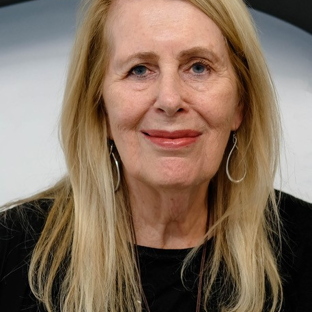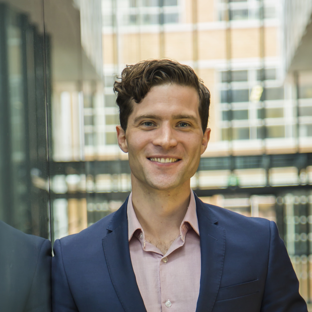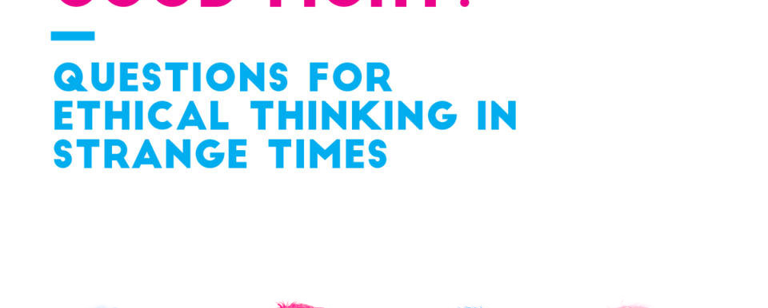If we peel back religion, politics, economics and other big players in our collective pursuit of the ‘common good’ … what do we end up with? How are our ideas of goodness formed – and can they ever be agreed upon?
As globalisation and technology draw the world closer together, they’ve also revealed chasms in how we relate to each other as nations, cultures and individuals – and how we resolve conflicts. What happens when good intentions are incompatible?
We’ve assembled a diverse and insightful group of thinkers to thrash out the practical questions of ethics. Raimond Gaita, Anne Summers, Gregory Phillips and Alan Duffy will come together to seek out and dissect: are there basic values or ideas of goodness or fairness that we can all share? What, specifically, are they? What even is ‘ethical’, should we strive for it – and can there be a middle ground? Hosted by Mark Colvin.
Featuring

Raimond Gaita
Raimond Gaita has published widely to academic and non- academic audiences. In 2009, the University of Antwerp awarded Gaita the degree of Doctor Honoris Causa ‘for his exceptional contribution to contemporary moral philosophy and for his singular contribution to the role of the intellectual in today’s academic world’.
His books, which have been widely translated, include: Good and Evil: An Absolute Conception, the award-winning Romulus, My Father, which was nominated by the New Statesman as one of the best books of 1999 and was made into a prize winning film starring Eric Bana, Frank Potente and Kodi Smit-McPhee; A Common Humanity: Thinking About Love and Truth and Justice, which was nominated by the Economist as one of best books of 2000; The Philosopher’s Dog, shortlisted for the New South Wales Premier’s Award and the Age Book of the Year, Breach of Trust: Truth, Morality and Politics and, as editor and contributor, Gaza: Morality, Law and Politics; Muslims and Multiculturalism. His latest book is After Romulus.
Gaita is Professorial Fellow in the Melbourne Law School and the Faculty of Arts at the University of Melbourne and Emeritus Professor of Moral Philosophy at King’s College London.

Anne Summers
Dr Anne Summers AO is a journalist, researcher, commentator and best-selling author of nine books, including the classic Damned Whores and God’s Police, first published in 1975, and still in print. Her most recent book ...
Gregory Phillips
Gregory Phillips is from the Waanyi and Jaru peoples, and comes from Cloncurry and Mount Isa. He is a medical anthropologist, with thirty years’ experience in leading change in cultural safety, healing and decolonisation.
Gregory is Chief Executive Officer of ABSTARR Consulting, is a Professor of First People’s Health, and serves on several boards and committees, including chairing the Ebony Institute, the Cathy Freeman Foundation and AHPRA’s Aboriginal and Torres Strait Islander health strategy group.

Alan Duffy
Associate Professor Duffy is an astrophysicist at Swinburne University creating baby universes on supercomputers to understand how galaxies like our Milky Way form and grow within vast halos of invisible dark matter.
He is attempting to find this dark matter as part of SABRE, the world’s first dark matter detector in the Southern Hemisphere at the bottom of a gold mine in Stawell, Victoria. He is also an Associate Investigator in two ARC Centres of Excellence investigating the origin of matter (CAASTRO-3D) and seeing the Universe with gravitational waves (OzGrav).
When not exploring simulated universes Alan lectures in physics as well as science communication at Swinburne University of Technology. Every fortnight Alan tries to explain breaking science from UFO sightings to the latest NASA discoveries on his space segment with ABC Breakfast News TV, ABC Radio Sydney with Robbie Buck and ABC Radio Melbourne with Clare Bowditch. He is also a regular on Ten’s The Project, Nine’s Today Weekends as well as Triple J’s Hack. Most recently Alan presented an episode of ABC's Catalyst and has another episode being released in 2018.
You can hear Alan on ABC Radio National Cosmic Vertigo, see him the in Todd Samson science show Life on the Line or catch him at any number of public speaking events. He’s even toured Australia with the BBC’s Science of Doctor Who show.
He was the Ambassador for the Sydney Science Festival 2016, and host for Famelab showcasing science talent across Australia.
He wrote and starred in a science show about dark matter, Dark, shown in 148 planetariums in 25 countries worldwide.
His other writing pursuits include his own column in the Conversation and Australia’s most popular science magazine Cosmos.
He was named one of Men’s Style Magazine’s Men of Influence, WA Sunday Time Magazine’s Best and Brightest as well as a finalist for the National Eureka Award for Promoting Understanding of Australian Science Research, Victorian State Finalist in the Fresh Science Award for science communication and Commbank’s Australian of the Day.

Mark Colvin
Mark Colvin is an Australian journalist, filmmaker and broadcaster. He has been the presenter of PM, one of the flagship Australian radio current affairs programs on the ABC Radio network, since 1997.
As a foreign correspondent, Mark covered such major stories as the American hostage crisis in Tehran, the events right across the continent as the Cold War began to thaw and the Gorbachev era. As a reporter for Four Corners, Mark made films on the French massacre of Kanaks in New Caledonia, the extinction of Australia's fauna, and the Cambodian peace process. His film on the Ethiopian famine won a Gold Medal at the New York Film Festival and was runner-up for an International Emmy Award.
